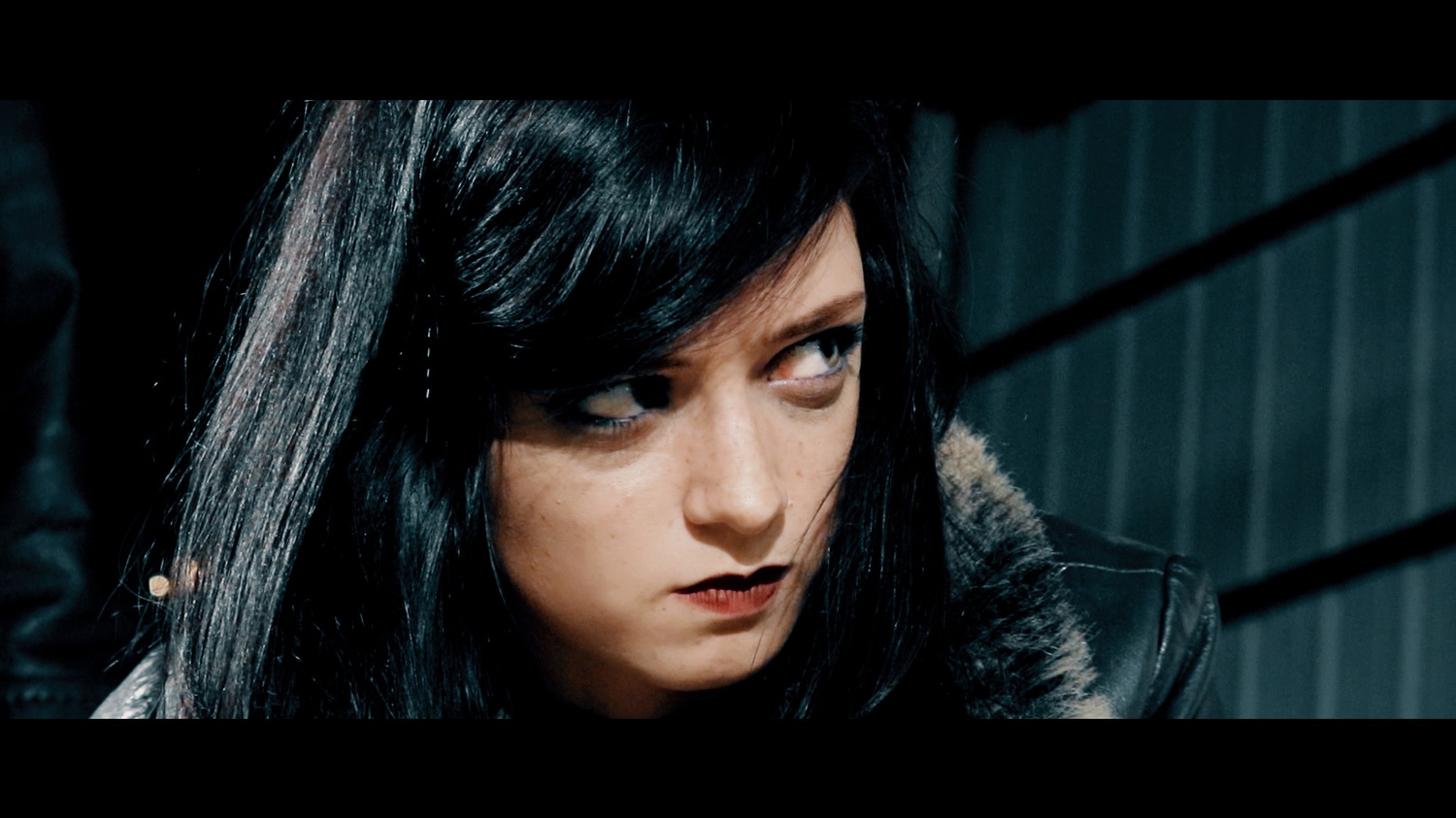
News
Garber Privately Tells Faculty That Harvard Must Rethink Messaging After GOP Victory

News
Cambridge Assistant City Manager to Lead Harvard’s Campus Planning

News
Despite Defunding Threats, Harvard President Praises Former Student Tapped by Trump to Lead NIH

News
Person Found Dead in Allston Apartment After Hours-Long Barricade

News
‘I Am Really Sorry’: Khurana Apologizes for International Student Winter Housing Denials
‘The Theta Girl’ Gory, Yet Heartwarming
3.5/5 STARS—Dir. Christopher Bickel

First-time director Christopher Bickel produced an unlikely gem in the form of his existential horror film “The Theta Girl” on a mere budget of $14,000. The basic plot of the film, an entry at the Boston Underground Film Festival, is relatively simple: To raise money for her friends’ all girl punk band, The Truth Foundation, Gayce (Victoria Elizabeth Donofrio) sells a drug called theta that brings its users into a shared hallucination of a metaphysical entity. At a retro nightclub where her band performs, Gayce inadvertently catches the attention of a horde of bible thumpers led by Brother Marcus (Shane Silman). In response to Brother Marcus’ short sermon on the sinfulness of drinking, the bartender doses the Jesus freaks’ cokes with theta, launching them and a few others into an alternate reality where the bird-like Entity (Nikki Gonzalez) presides. Outside the club, Gayce finds her “best fucking friend,” Leonard (Kenneth Briere) dead and his spaniel Bo missing, provoking her to hunt down the killer.
At times unapologetically gory, “The Theta Girl” balances over-the-top sex and gore with more subtly suspenseful and sometimes heartwarming scenes. Bickel produces a gritty exploration of a surreal world of theta-induced hallucinations experienced by characters ranging from punk rock band members to Bible thumpers, a conceit reminiscent of ’80s slasher films that may not be for everyone.
The film begins with a hypnotizing opening sequence in which Gayce, the titular Theta Girl, prowls through nighttime streets and seedy alleys. A young drug dealer sporting a leather jacket, combat boots, and dark-blue eyeliner, Gayce has all the markings of a street punk who exudes toughness and confidence. Yet while her fearlessness throughout the film is refreshing, it is her moments of innocence and tenderness that are truly surprising, presenting her as a real person caught in the midst of unsettling ridiculousness. Take, for example, her interactions with Leonard, a mute homeless man who lives behind the club with his cute spaniel, Bo. While brief and reticent, Gayce’s conversations with Leonard captures a completely different side of her personality, one that adds a heartfelt facet to her initially one-dimensional fierceness. Because of her love and protectiveness over her best friend, however, Gayce is determined to violently avenge his death.
Showing blatant disregard for its viewers’ comfort levels, mediocre production value came to the detriment of the shock value of “The Theta Girl.” While the constant slasher-esque depictions of blood and guts proved appalling at first, they became less shocking over time. In a particularly grisly scene, Gayce finds Leonard’s intestines sprawled out on the ground in the form of a theta symbol—a scene of gore with little thematic significance. The gratuitous gore might have damned the movie entirely, if not for its contrast to more tactfully eerie scenes, including one in which the theta-induced Entity appears shortly after Gayce finds Leonard’s body. Speaking in a screechy warble with equally creepy subtitles, The Entity, a pale bird woman, torments Gayce until she collapses and begs it to leave, for which it taunts her that it cannot because “I’m just you, after all.” The contrast between the cheerful backdrop of vibrant, cartoonish trees behind The Entity and The Entity itself only heightens the uneasiness that accompanies each Theta trip.
There’s also a surprisingly redemptive emotional heart at the center of horror movie tropes at work in “The Theta Girl.” Gayce’s conversation with Leonard exemplifies the abrupt insertion of heartwarming humanity, amidst general disturbing substance. Gayce’s conversation with Derek (Darelle D. Dove), her dealer, is another unexpectedly heartfelt scene taking place shortly after a blood-fest in a church. Caught carrying drugs, Gayce and Derek attempt to escape the police as they speed through the freeway. Livid at their carelessness, Gayce declares she has no interest in learning Derek’s name. Derek then decides that they should turn themselves in, a suggestion against which Gayce pleads unsuccessfully. In a rare moment of clarity, Gayce asks Derek for his name and he responds, prompting her to directly address him. In response, Derek throws her out of the car to prevent the police from finding her.
Although “The Theta Girl” may not be a technically polished movie with a coherent storyline, its smooth integration of existentialism, slasher horror, and punk rock proves that it can handle many concepts at once and deliver. Whether shaken or inspired, its viewers won’t leave it feeling unbothered.
Want to keep up with breaking news? Subscribe to our email newsletter.
